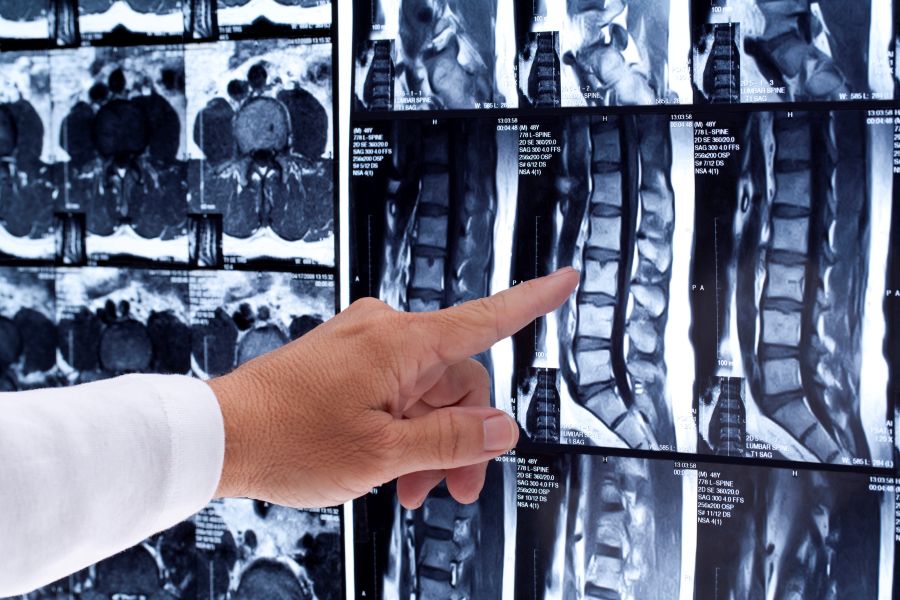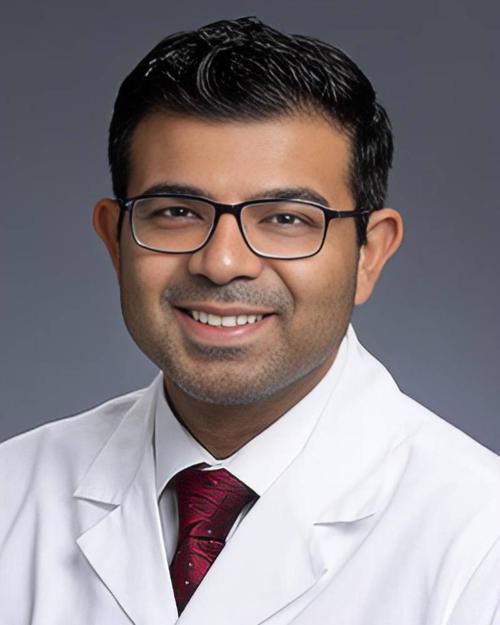
What is neurosurgery, and how does it differ from neurology?
Most people think of neurosurgery as brain surgery, but it’s actually much more than that. Neurosurgery is the medical specialty focused on diagnosing and treating conditions that affect the brain, spinal cord, spinal column and peripheral nerves.
Neurologists and neurosurgeons both care for patients with conditions affecting the nervous system, but there are key differences in our training and approach. Neurologists complete medical training and specialize in diagnosing and treating neurological conditions without surgery. They often manage conditions using medications, physical therapy or procedures like spinal taps, EEGs and EMGs.
As a neurosurgeon, I’ve undergone surgical training, and I focus on conditions that may require surgery, such as brain tumors, aneurysms, herniated discs and spinal cord compression. While we each have distinct roles, neurologists and neurosurgeons often collaborate closely to provide comprehensive care.
What types of diseases or conditions do neurosurgeons treat?
Neurosurgery covers a broad range of conditions involving the brain, spine, spinal cord and peripheral nerves. I treat patients with traumatic brain or spine injuries, brain and spinal cord tumors, herniated discs, arthritis of the spine, pinched nerves and peripheral nerve conditions like carpal tunnel syndrome.
We also address vascular issues such as aneurysms, vascular malformations and blocked arteries in the brain. Some patients come to us with birth defects involving the nervous system. Whether it’s managing chronic pain or treating life-threatening emergencies, our specialty involves a wide variety of complex and critical conditions.
What are some of the most common neurosurgical procedures?
Some of the most common spine surgeries I perform are laminectomy and discectomy. These procedures relieve pressure on pinched nerves, which often cause arm or leg pain. In some cases, we may perform fusion surgery to stabilize parts of the spine affected by wear and tear that causes back or neck pain.
For the brain, we frequently operate to remove tumors or blood clots, especially in trauma cases. Another common procedure involves opening blocked arteries to prevent or treat strokes. These surgeries are aimed at preserving neurological function and improving quality of life, and I try to explain them using the simplest terms possible so patients can feel informed and confident in their care.
Is surgery always necessary for spinal cord compression or pinched nerves?
Surgery is not always necessary — and in fact, it’s often considered a last resort. Before recommending surgery, we look at several factors, including the patient’s overall health, severity of symptoms, and whether non-surgical treatments have been attempted.
During a consultation, I assess a patient’s neurological function, strength and reflexes, and review imaging such as MRIs, CTs or X-rays. Many patients benefit from medications, physical therapy or spinal injections. However, if the nerve compression is causing significant pain or functional deficits, surgery may be the most effective option.
What does recovery from brain or spine surgery usually involve?
Recovery depends on several factors, including the patient’s age, overall health and the type of procedure. Many people are surprised to learn that patients often go home just one or two days after certain brain surgeries — even those involving tumor removal. For common spine surgeries, some patients go home the same day or the next day. In general, most patients are discharged within three to five days.
Postoperative recovery includes caring for the incision, managing pain with medications and avoiding strenuous activity. We often recommend physical or occupational therapy to help patients regain strength and mobility. Regardless of the procedure, patients are supported by a team — including nurses, nurse practitioners, clinic staff and me — as we monitor progress, refill medications and help guide recovery.
What can patients expect from working with a neurosurgeon?
When patients come to see me, it’s often because something serious is going on with their brain, spine or nerves. I take the time to explain their condition clearly and walk them through all the treatment options — both surgical and non-surgical. I want every patient to feel heard, informed and empowered in making decisions about their care.
Neurosurgery is a rapidly advancing field, and I work closely with other specialists, like neurologists, to provide the best outcomes possible. Whether we’re addressing a pinched nerve or performing a life-saving brain surgery, the goal is always to restore function, relieve pain and help patients return to the activities they love.
Learn more about neurosurgery at Northside.

